Friday 5 September 2025
18:00 – 19:00 Doors open
19:00 – 19:45 Casino
20:00 – 20:30 Artist talk with Ofelia Jarl Ortega
Saturday 6 September 2025
18:00 – 19:00 Doors open
19:00 – 19:45 Casino
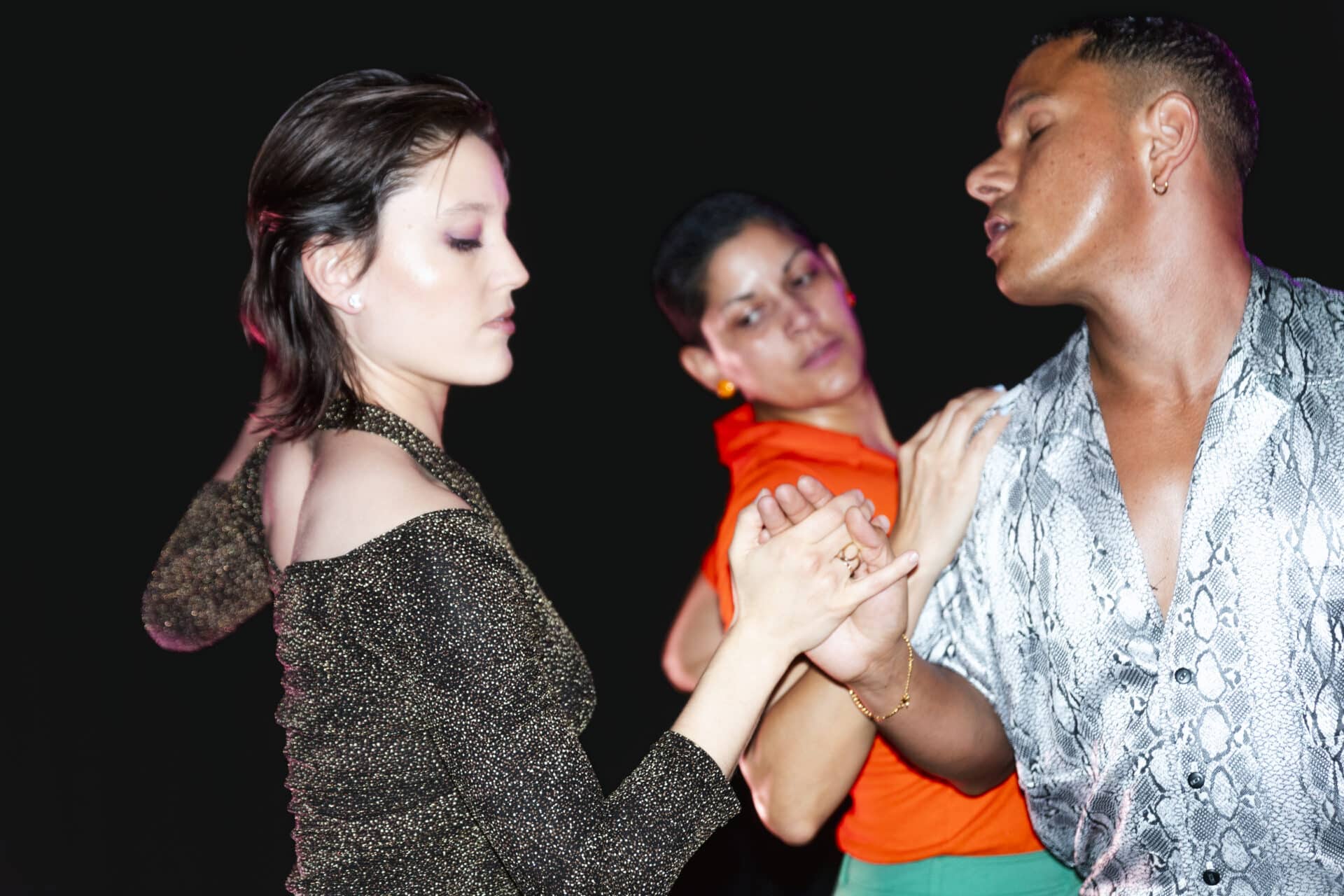
Date
Time
Venue
Date
Time
Venue
Date
Time
Venue
Casino is what salsa dancing has been called in Cuba, referring to the place where people go to dance. Casino is also the title of this piece.
In Casino, Chilean-Swedish Ofelia Jarl Ortega, caterina daniela mora jara from Patagonia (Argentina/Chile) and Jao Moon from Colombia move on a fictional dance floor set in a Latin American club for couples dancing. Each dancer brings their own relationships to salsa, letting it reverberate in their body through a repertoire of historical and personal memories.
Through the engagement of the dancers and the sounds of their steps, the music is present in its absence. In a subtle, restrained, detailed and playful way, the three dancers connect – and fail to connect – simultaneously.
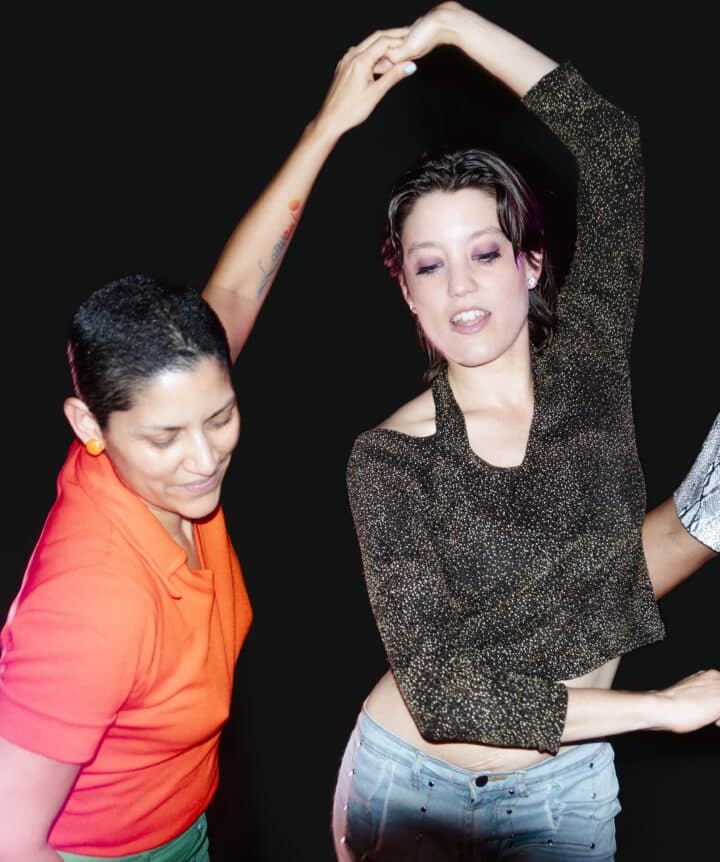
18:00 – 19:00 Doors open
19:00 – 19:45 Casino
20:00 – 20:30 Artist talk with Ofelia Jarl Ortega
18:00 – 19:00 Doors open
19:00 – 19:45 Casino
© Karl-Oskar Gustafsson
A big Latino boom took place internationally in the 90s and 00s, shedding light on artists like Shakira, Jennifer Lopez, Ricky Martin and Marc Anthony. Of course, there have been Latino booms before and after that too. “Latino” is, as we know, not a genre in itself, as Latin America includes from Chile in the south to Mexico in the north. In Sweden, the early 00s Latino explosion made salsa very popular. Everyone was dancing it, including the Latin American diaspora.
Chilenos have never really had salsa as a national dance. Instead, it was very big in Cuba, Colombia and the Caribbean. There, every dinner ends with salsa dancing, and every birthday celebration is a dance. In Chile, the social dance has been cumbia, or the folk dance cueca. Nevertheless, salsa gatherings among Chilenos became huge in Sweden. The phenomenon grew in Sweden due to the big number of Chilenos living in the country post Pinochet’s dictatorship in the 70s-90s. For the exiled Chilenos, salsa became a way to connect to the Latin American background. It became a subculture within the diaspora. And to be Latino you needed to know how to dance salsa, a cliché that still haunts the dancers in this piece.
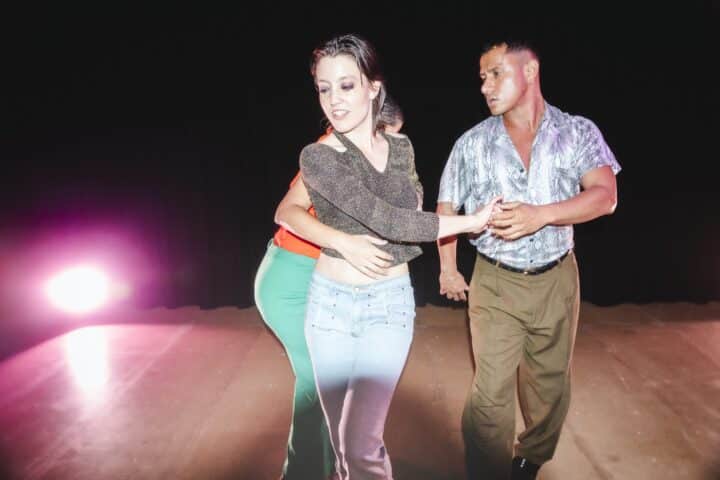
In my family, only my uncle Rafael danced. He even had his own salsa club at the Opera Restaurant in Malmö in the 90s. But since salseros mostly drink water when they dance, the club had to close due to low sales at the bar, despite the well-attended evenings.
When I first traveled to Chile as an adult, I encountered the thriving reggaeton scene and the feminist subgenre neo-perreo. For a few years, reggaeton was my connection to Latin America and my own heritage, until I stumbled upon salsa. Salsa music has always been a part of what has been played at home, but the dance had been invisible for me. Now salsa is all I think about. It has become my newfound way of connecting with a Latin American diaspora, being Chilean in Sweden and being a second-generation immigrant.
– Ofelia Jarl Ortega
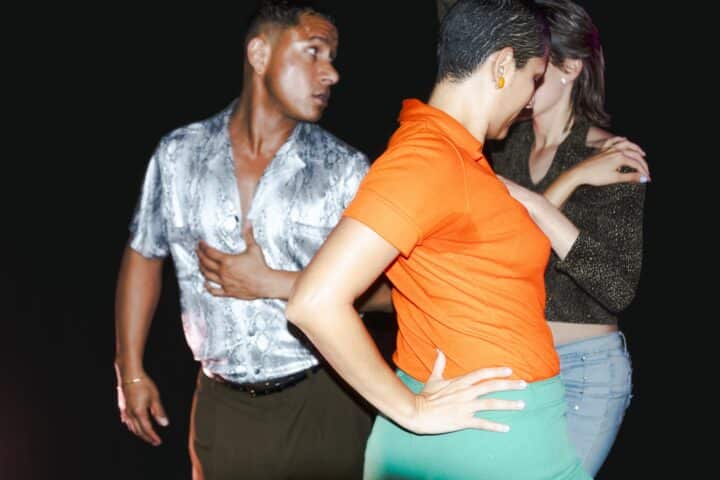
Concept: Ofelia Jarl Ortega
Choreography: Ofelia Jarl Ortega
Dancers: Jao Moon, caterina daniela mora jara and Ofelia Jarl Ortega
Light Design: Johan Sundén
Costumes: Erik Annerborn
Dramaturgy: Quim Bigas, Andrea Rodrigo
Producer / Production: Terry Johnson (Johnson & Bergsmark)
Video: Karl-Oskar Gustafsson
Co-production: Moderna Dansteatern, Dansehallerne and BIT Teatergarasjen
Supported by: The Swedish Art Grants Committee, The Swedish Arts Council and Stockholms Stad
Ofelia Jarl Ortega (b. 1990) is a Chilean-Swedish choreographer and performer based in Stockholm. Her work centres around vulnerability and femininity, often with a suggestive erotic aesthetic, where questions around power and group dynamics are at the core for her investigations. She holds a diploma from The Royal Swedish Ballet School (2010) and an MA in Choreography from Stockholm University of Arts (2014). Her works have been shown at venues such as ImPulsTanz, Moderna Dansteatern, Inkonst, Arsenic, and Moving in November. More at: www.ofeliajarlortega.com
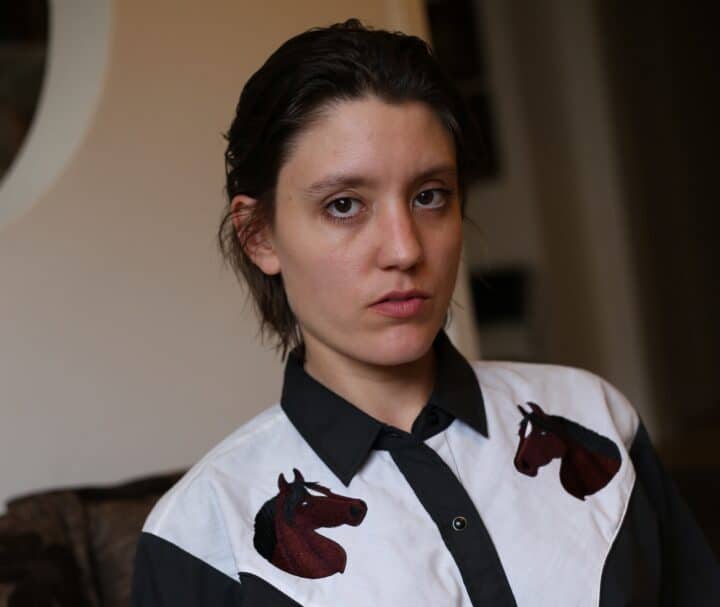
Friday 5 September 2025
20:00 – 20:30
Studio Bergen
In connection with the performance Casino at Studio Bergen on September 5–6, we invite you to an artist talk with Ofelia Jarl Ortega.
The conversation is led by Daniela Ramos Arias, she/her (San José, Costa Rica, 1980). Daniela is a curator living and working in Bergen. She has a BA and a MA in visual arts from Kunsthøgskolen i Bergen and a MA in Curatorial Practice from the University of Bergen. She was Head of Education and Mediation for Bergen Assembly’s 2019 and 2022 editions. Daniela is one of the curators at Hordaland Kunstsenter and one of the founding members of the interdisciplinary space, Kiosken. She is also one of the creators of the online mediation platform, TOOLBOX.
Daniela is an active member of the Empathic Pedagogies Network and a member of CIMAM. She is a member of the selection committee of the Norwegian Council of Arts, and part of the selection committee of Norwegian Crafts.
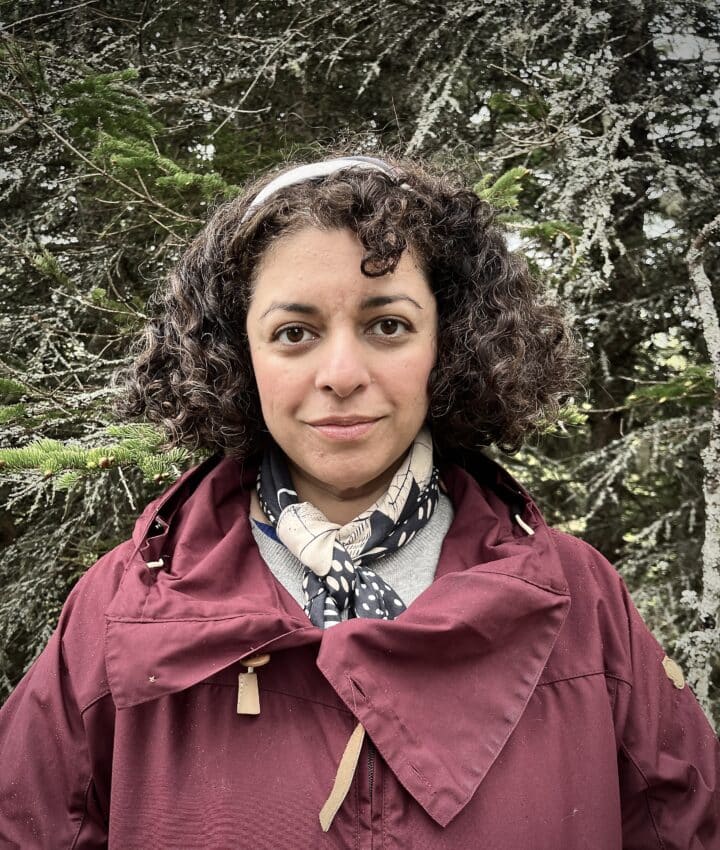
We at BIT Teatergarasjen are pleased that our audience consists of diverse people; individuals with different experiences and corresponding unique needs.
Some of our visitors enjoy being surprised, shocked, and challenged, while others may wish to avoid certain content. We invite anyone who wants to know more about one of our events, regardless of what or why, to contact Jay at jay@bit-teatergarasjen.no or by calling +47 55 23 22 35.